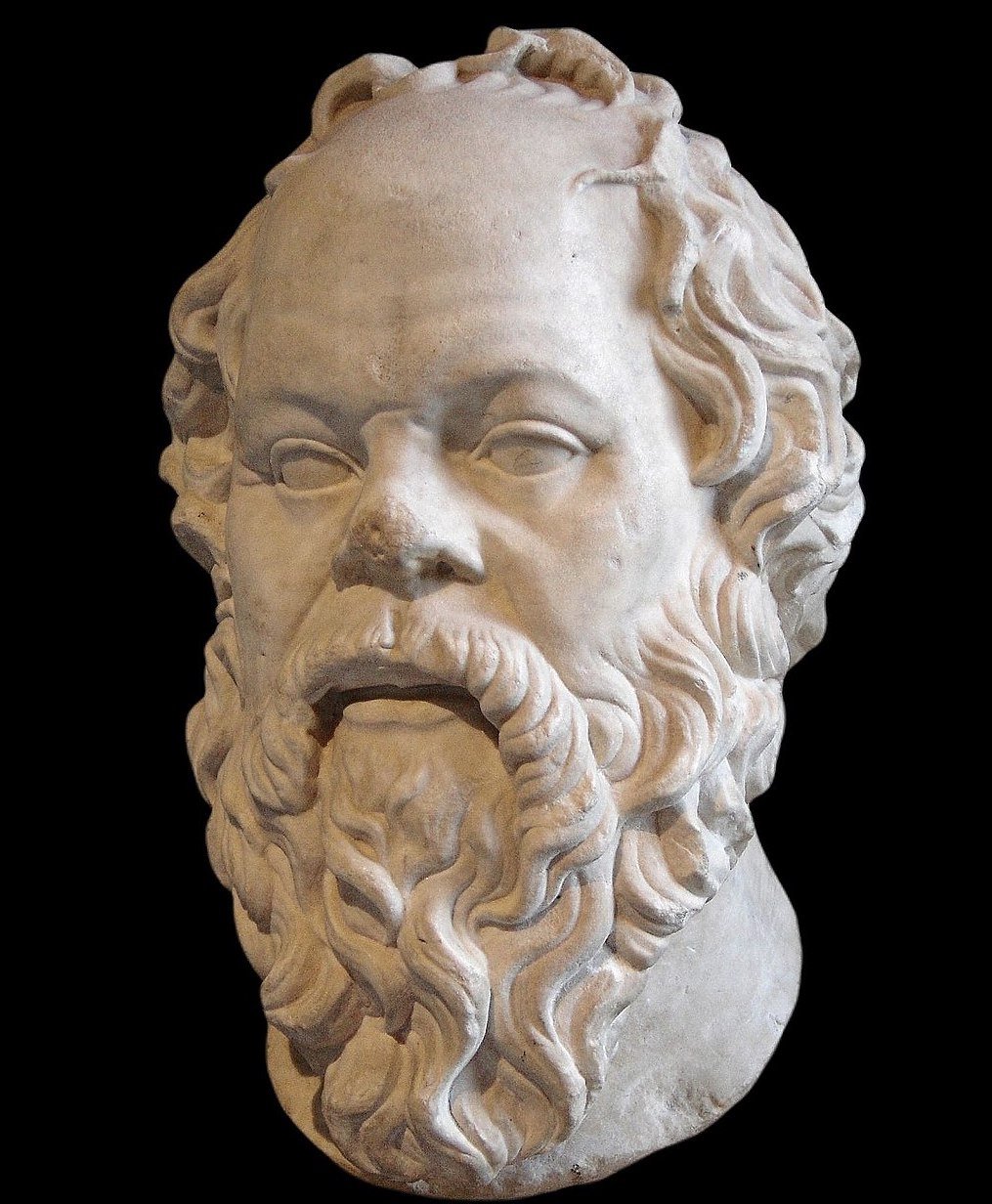What’s the Point of the Humanities?
Why should STEM students have to read this old guy? I found this photo of a bust of Socrates on Wikipedia.
July 19, 2023. The humanities, you may have heard, are in trouble. Enrollment in philosophy, history and literature courses “is in free fall,” The New Yorker reports. Defenses of the humanities, such as one published last week in The Los Angeles Review of Books, come across as cries of rage and despair rather than reasoned arguments. I tried to defend the humanities myself a decade ago after reading a New York Times lament about declining enrollments. (Yeah, this is an old story.) Below is a revised version of my column. –John Horgan
What's the point of the humanities? Of courses in philosophy, history and literature? I was forced to confront this question in 2010 when I started teaching a humanities course required for first-year students at Stevens Institute of Technology. The syllabus includes Socrates, Thucydides, Shakespeare, Descartes, Marx, Freud and other bigshots [Postscript].
I love teaching the course, but I don't assume students love taking it. So on the first day of class I ask my wary-looking students, “How many of you would skip this course if it wasn't required?” After I assure them that they won't hurt my feelings, almost all raise their hands.
When I ask them to explain their disdain, they say they came to Stevens to prepare for careers in engineering, computer science, physics, health care, finance, etc. They don't see the point of reading old, impractical stuff unrelated to their careers. When I ask them to guess why Stevens inflicts humanities courses on them, someone usually says, smirking, “To make us well-rounded.”
I say, “I don’t know what ‘well-rounded’ means. Does it mean being able to chitchat about Shakespeare at cocktail parties? I don't care about that.” Then I give them my pitch for the humanities, which goes something like this:
We live in a world increasingly dominated by science. And that's fine. I became a science writer in the early 1980s (after getting degrees in English and journalism) because I considered science to be the most intellectually thrilling and consequential of all human enterprises.
But it is precisely because science is so powerful that we need the humanities now more than ever. In your science and engineering classes, you're given facts, answers, knowledge, truth. Your professors say, “This is how things are.” They give you certainty. The humanities, at least the way I teach them, give you uncertainty and doubt.
The humanities are subversive. They undermine the claims of all authorities, whether political, religious or scientific. This skepticism is especially important when it comes to claims about humanity, about what we are, where we came from, and even what we can be and should be. Science has replaced religion as our main source of answers to these questions. Science has told us a lot about ourselves, and we're learning more every day.
But the humanities remind us that we have an enormous capacity for deluding ourselves. They also tell us that every single human is unique, different than every other human, and each of us keeps changing in unpredictable ways. The cultures we inhabit also keep changing--in part because of science and technology! So in certain important ways, humans—as an object of study—resist the kind of explanations that science gives us.
The humanities are more about questions than answers, and we're going to wrestle with some ridiculously big questions in this class. Like, What is truth anyway? How do we know something is true? Or rather, why do we believe certain things are true and other things aren't? And how do we decide whether something is wrong or right to do, for us personally or for society as a whole?
Also, what is the meaning of life? What is the point of life? Should happiness be our goal? Well, what the hell is happiness? And should happiness be an end in itself or just a side effect of some other more important goal? Like gaining knowledge, or reducing suffering?
Each of you has to find your own answer to these questions. Socrates, one of the philosophers we're going to read, said wisdom means knowing how little you know. Socrates was a pompous ass, but there is wisdom in what he says about wisdom.
If I do my job, by the end of this course you'll question all authorities, including me. You'll question what you've been told about the nature of reality, about the purpose of life, about what it means to be a good person. Because that, for me, is the point of the humanities: they keep us from being trapped by our own terrible desire for certainty.
Postscript: The readings for the first-year humanities courses at Stevens have evolved over the past decade. There are fewer works by dead white guys and more by women and people of color, some of whom are still alive! But I still teach Plato’s parable of the cave every semester. See Stuff I Love Making Students Read.
Further Reading:
Jack London, Liberal Arts and the Dream of Total Knowledge
My Bloomsday Tribute to James Joyce, Greatest Mind-Scientist Ever
Advice to Aspiring Science Writers: Remember Marx
Conservation of Ignorance: A New Law of Nature
My free online books Mind-Body Problems and My Quantum Experiment also show how the humanities can illuminate deep scientific mysteries.


